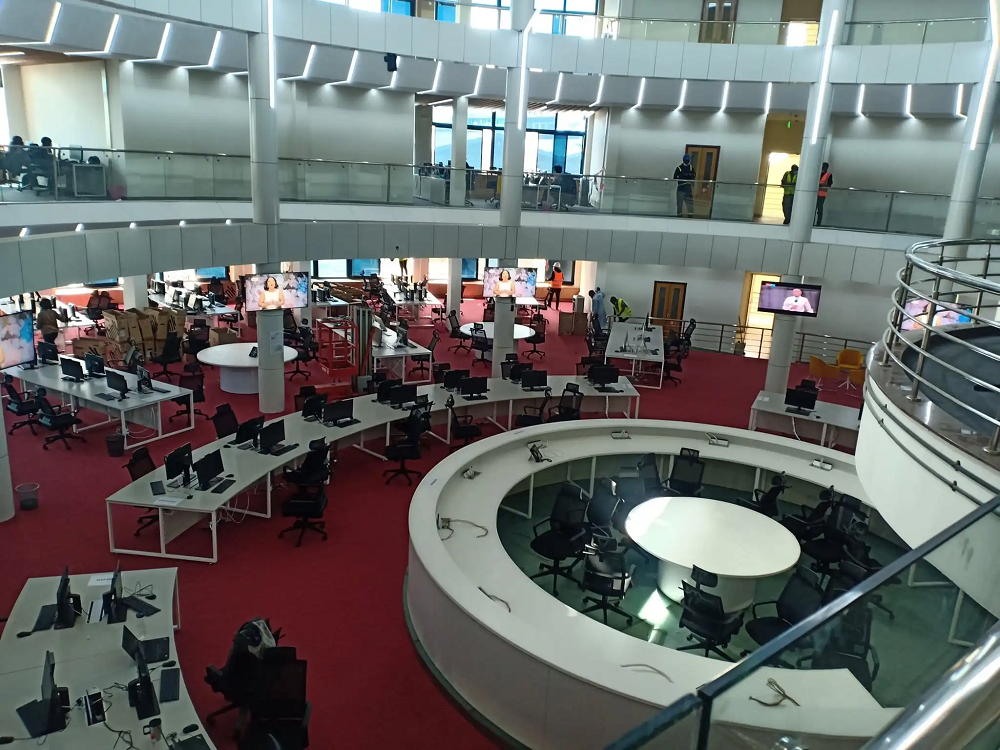Standard Group has recorded a record loss for its business, touching off panic in the board and among employees and investors over the company’s uncertain fate. The company, which runs Kenya’s second biggest newspaper The Standard, had its loss balloon to Ksh1 billion for the period ending December 2022, from just Ksh22 million in 2021. It’s the biggest loss in its over 120-year history.
According to the Group’s financial results for the period, total revenue for the Group decreased 13% to close at Ksh2.7 billion from Ksh3.1 billion the previous year, while total costs increased by 17% driven by an increase in the cost of production. “Further,” the company says, there was an increase in the provision for expected credit losses, due to pending government bills. Consequently, the Group incurred a loss before tax of Ksh1 billion compared to a loss before tax of Ksh22 million in 2021.”
After factoring in taxation the loss contracts to Ksh865 million, though not strong enough to get it out of the deep end of the red ink. What is worrying is the fact that it’s current assets, just at Ksh1.6 billion, are three times less than its current liabilities at Ksh4 billion. Technically speaking, therefore, Standard Group is insolvent.
To save Standard from implosion, financial experts say the company needs a cash injection of up to Ksh1 billion. This won’t be an easy feat with investors jittery and the financial markets frowning at traditional media companies. Standard is also currently servicing previous loans that keep devouring its earnings.
The news came as the Nairobi Securities Exchange, where Standard Group is listed, took a long break for the weekend and Labour Day on Monday. The stock market is expected to react to the news at the opening of trading on Tuesday as investors take new positions on the company’s stock which closed at Ksh9.20, having dropped 3.6% for the day.
See >> Broke Standard Journalists Sleep At The Office
Read >> Inside Pastor Ezekiel’s Mega City Project In Kilifi
Standard Group management blames the major decline in earnings on a slowing economy due to global uncertainties. Besides inflation trending high, the Kenya shilling depreciated against the dollar by 9%, it says in its commentary, which led to an increase in the cost of imports, hence a rise in the cost of direct materials.

“Following conclusion of the 2022 general elections, the Group is optimistic that the current economic environment will improve and shall continue to present business opportunities that it can tap into,” Ms Millicent Ngetich, the Standard Group Company Secretary, says. “The Group will also continue to enhance its operational efficiency while monitoring its cost rationalization initiatives to counter the effects of the rising cost of doing business.
See Full Standard Group’s Financial Results Here
Standard Group is still weighed down by huge loans, with cost of servicing its financing rising to Ksh215 million in 2022, representing over 20% of its loss, against Ksh162.8 million in 2021.
See >> The Twists And Turns That Gave Birth To Business Daily
The media house, which also runs KTN TV station as well as Radio Maisha, among other media outlets, has been under pressure over the past three or so years, as revenues got squeezed. It has lately been experiencing problems paying staff, holding up to three months in salary arrears. A good number of staff, worried about its stability, have been bolting out.
Will Standard defy this dark cloud and bounce back in the face of stiff competition?
The loss has turned focus to management, led by CEO Mr Orlando Lyomu, who appears to have run out of tricks to get Standard out of the financial hole. Editorial is also reeling under pressure to deliver popular products. Editor-in-chief, Mr Ochieng Rapuro, has been a busy man over the past few years tweaking this and reforming that while making staff changes that have yet to show significant impact.
Insiders say the trouble with Standard maybe less to do with its products and more of a management lapse. Will Standard defy this dark cloud and bounce back in the face of stiff competition from its traditional rivals and new media? That’s the question no one at Standard Centre wants to confront.


![Year-on-year, land prices in satellite towns increased by 8.08 per cent compared to a lower 1.42 per cent annual increase in land prices in the city. [Photo/NMG]](https://i0.wp.com/businesstoday.co.ke/wp-content/uploads/2023/04/Mombasa-Road.jpg?resize=150%2C150&ssl=1)









Leave a comment